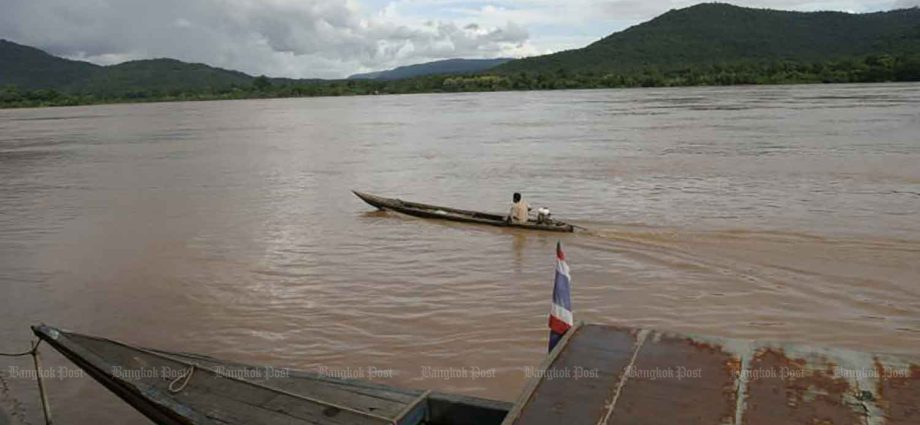
The National Human Rights Commission (NHRC) says transboundary hydropower dam projects along the Mekong River pose a risk to Thailand’s environment, economy and community safety.
In a letter submitted to Prime Minister Paetongtarn Shinawatra on Oct 3, the NHRC said it had outlined its concerns regarding four hydropower dam projects: the Ban Koum Dam, the Sanakham Dam, the Phou Ngoy Dam and the Pak Chom Dam, all on the Lower Mekong along the Thai-Lao border. The developers are registered Thai companies.
The NHRC’s move followed complaints by locals over the potential impact on the environment and living conditions and the possible violation of human rights the dam projects would cause.
Examining the proposals, the NHRC found that, although these dams would be built on the Lao side of the Mekong River, they’re located close to Thailand, so the risk of cross-border impacts is high, especially in Loei and Ubon Ratchathani provinces.
An NHRC report said the projects would harm the environment, hydrology and fisheries, economy and society, and border security and territorial integrity.
The dams would change the natural water flow, leading to riverbank erosion, aquatic animal migration, and a collapse of the freshwater ecological system.
A large volume of water discharged by the dams during the rainy season would cause severe major flooding in surrounding areas.
Work on the dam may cause changes in the deep water channel, which would affect the Thai-Lao boundary line demarcation process underway by the Joint Boundary Commission (JBC).
The NHRC urged the Office of the National Water Resources (ONWR) to consider the impacts the hydropower dam projects may cause.
It also suggested the Energy Ministry review its electricity purchasing plan and consider alternative energy sources that do not have such drastic impacts.
The NHRC said that the government, investors, and developers are responsible for respecting human rights based on the constitution and the United Nations Guiding Principles (UNGP) on Business and Human Rights.
The Ministry of Justice should ensure the operations of all four projects are consistent with UNGP principles and have measures to mitigate impacts and prevent risks consistent with human rights principles.
Pianporn Deetes, a campaign director with the Southeast Asia Program at International Rivers, a non-profit organisation protecting river-dependent and dam-affected communities, said the NHRC letter was a welcome development.
She said the Mekong mainstream dams have devastating impacts on riverside communities and are useless for Thailand’s energy needs. The government should cancel plans to buy electricity from more mainstream dams.
Montree Chantawong, a coordinator with the Mekong Butterfly, a group that works on protecting the Mekong Basin’s natural resources, said the government should consider the NHRC’s suggestions.

